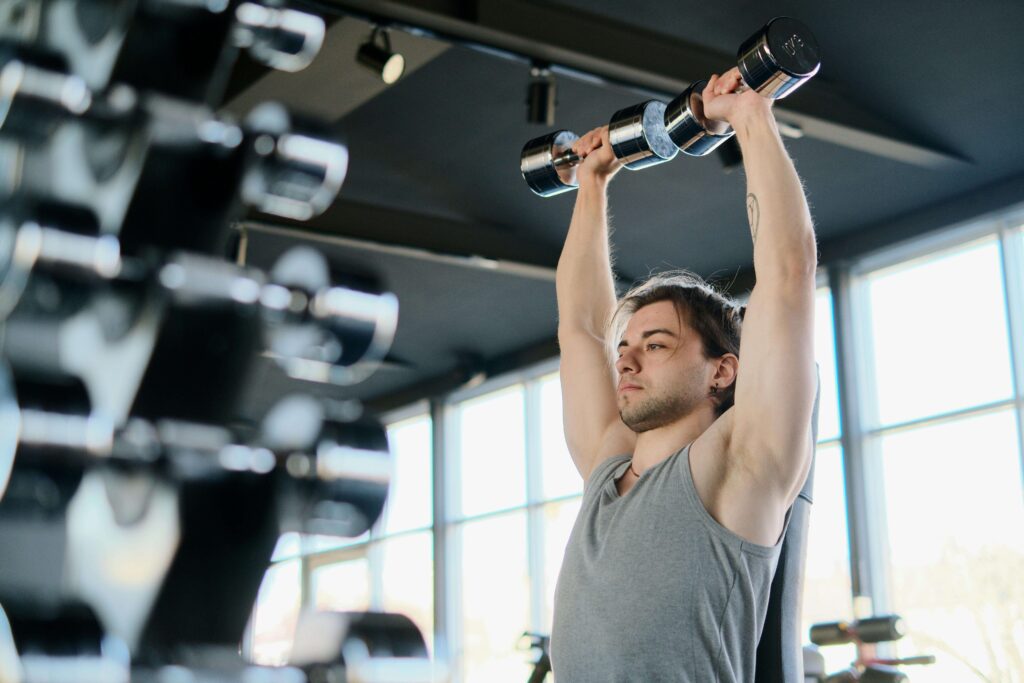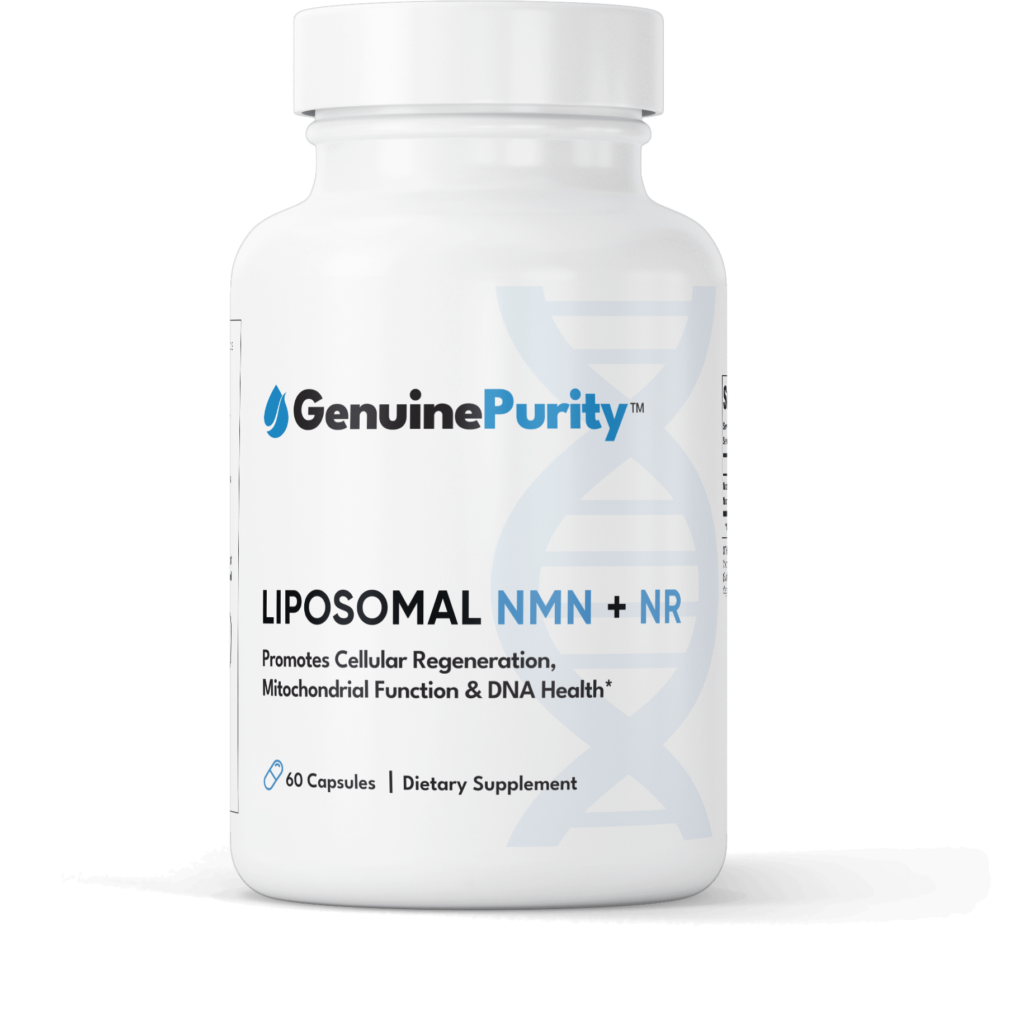Are you ready to feel stronger, more energetic, and confident, regardless of age?
As we get older, maintaining muscle mass and strength becomes increasingly essential for our overall health. The gradual loss of muscle strength is one of the most noticeable signs of aging, impacting our ability to perform everyday activities like climbing stairs and carrying groceries.
For many, this muscle decline is a psychological issue as much as a physical one, decreasing our independence and quality of life. Fortunately, losing muscle with age isn’t inevitable. There are effective, science-based strategies to combat this and help you overcome muscle loss while maintaining strength.
Today, we explore these strategies, guiding you through various methods to keep your muscles strong and healthy. Discover how to stay active and vibrant as the years go by with actionable steps that can make a real difference, from simple changes to your exercise routine to tweaks to your diet.
We also discuss the underlying factors contributing to muscle loss to help you better understand how to maintain and improve your muscle health.
Keep reading to learn how to preserve your muscle mass and enjoy a more active and fulfilling life.
What Causes Age-Related Muscle Loss?
Muscle loss as we age is a common concern. The gradual decline in muscle mass and strength occurs as we get older. Several factors contribute to this issue, and understanding why it happens can help you tackle it effectively.
Let’s examine the most common contributing factors to this condition.
Decreased Physical Activity
The older we get, the less active we may become. Slowing down with age is natural, but decreased physical activity can lead to muscle atrophy. Muscle atrophy is the weakening and shrinking of muscles without regular use.
Nutritional Deficiencies
Eating well is crucial as we get older. While a well-balanced diet is essential at any age, older adults often have inadequate intake of nutrients that are vital for muscle maintenance. Many people don’t get enough protein and other important nutrients that support muscle health.
Hormonal Changes
Hormone production declines with age, impacting our muscle growth and repair. Testosterone and human growth hormone (HGH) are essential for building and maintaining muscle. As our bodies produce less of these hormones, it becomes harder to keep muscle mass.
Inflammation
Chronic inflammation often accompanies aging, contributing to muscle degradation. Increasing levels of inflammation in the body can lead to muscle breakdown, interfering with muscle repair and growth.
Reduced Protein Synthesis
Reduced protein synthesis essentially means our muscle-building process slows. Our bodies become less efficient at synthesizing new proteins as we age. This means that even with adequate protein intake, the body struggles to build new muscle tissue, making it harder to maintain muscle mass.
Decreased Cellular Energy
Mitochondria, the powerhouses of cells, provide the energy needed for muscle function. With age, mitochondria become less efficient, reducing the energy available for muscle performance.
Knowing these factors gives a clearer picture of why muscle loss happens and allows you to take proactive steps to preserve your muscle strength and health as you age.
The Role of NAD+ in Muscle Health
Nicotinamide Adenine Dinucleotide (NAD+) might sound like a complex scientific term, but it’s actually a simple molecule that is crucial for keeping our muscles strong and healthy. Think of NAD+ as a helper our cells need to produce energy.
NAD+ levels naturally decline as we age, contributing to muscle weakness, loss of stamina, and other age-related issues. Boosting NAD+ levels can significantly enhance muscle strength and performance.
Next, we’ll explore practical ways to combat age-related muscle loss, including how increasing NAD+ levels can profoundly impact our overall health and vigor.
8 Tips for Overcoming Age-Related Muscle Loss
Maintaining muscle strength as you age might seem like an uphill battle, but you can keep your muscles strong and healthy with the right strategies.
Incorporating the following science-based tips into your daily routine can effectively combat age-related muscle loss and allow you to enjoy a healthier, more active life.
#1 Consume a Protein-Rich Diet
As we age, our bodies require more protein for maintaining muscle mass, repair, and growth. Older adults must consume a higher amount of protein to counteract the age-related decline in protein synthesis.
Include a variety of protein-rich sources in your diet, like fish, meat, eggs, beans, nuts, and dairy products. Your daily intake will vary depending on weight, age, and health status.

#2 Incorporate Strength Training
Regular strength training is the most effective means of preserving and building muscle mass. Resistance exercises, such as weightlifting and resistance band workouts, help stimulate muscle growth and improve strength.
You don’t have to lift heavy weights to experience benefits, as these exercises make your muscles work hard even when you use light weights or incorporate squats, push-ups, and lunges. These sessions focus on all major muscle groups and help improve bone density and joint health.
#3 Maintain a Physically Active Lifestyle
In addition to strength training, staying active through aerobic, flexibility, and balance exercises can support muscle mass and overall fitness efforts. Incorporate activities such as swimming, walking, yoga, cycling, or tai chi to improve cardiovascular and muscle health.
These activities can help prevent falls and improve your range of motion and overall muscle function.
#4 Ensure Adequate Nutrition
Maintaining muscle health as you get older requires proper nutrition. While protein is vital for muscle repair and growth, adequate nutrition goes beyond protein. Your body needs a variety of nutrients to function optimally and combat muscle loss.
Vitamin D is essential for bone and muscle health, calcium is vital for muscle contraction, and omega-3 fatty acids possess anti-inflammatory properties to help preserve muscle mass. Eating a diet rich in fruits, vegetables, healthy fats, and whole grains ensures your body gets all the necessary nutrients to support muscle health.
#5 Stay Hydrated
As we get older, we often experience a reduced sense of thirst, but dehydration negatively impacts muscle function and recovery. Ensure you drink enough water throughout the day, even if you don’t feel thirsty.
It’s important to drink regularly, aiming for about 8 cups of water daily. Adjust your water intake based on the climate and your level of activity.
#6 Get Quality Sleep and Reduce Stress
Sleep is vital for muscle recovery, and chronic stress can lead to muscle tension, negatively impacting muscle health. Good sleep hygiene practices can help improve sleep quality while minimizing stress levels.
Create a comfortable sleep environment, maintain a regular sleep schedule, avoid caffeine and electronics late in the day, and practice meditation or deep breathing exercises before bed. Finding healthy ways to relax and unwind is essential for managing stress and improving sleep hygiene.
#7 Support Hormonal Balance
Hormonal changes due to age can significantly affect muscle health. As testosterone and growth hormone levels decline, managing these changes through lifestyle adjustments becomes increasingly important.
Exercising regularly, getting enough sleep, and managing stress levels can help maintain hormonal balance and support muscle growth and maintenance. In some severe cases, medical interventions may be necessary but should be considered under the guidance of a healthcare provider.

#8 Boost NAD+ Levels
As discussed earlier, NAD+ plays a crucial role in cellular energy production and muscle function. Increasing NAD+ levels can improve muscle strength and enhance muscle repair.
The best ways to naturally boost NAD+ include exercising regularly and consuming foods rich in NAD+ precursors (e.g., milk, fish, green vegetables). There are also supplements available, like GenuinePurity™ Liposomal NMN + NR, which contain nicotinamide riboside (NR) or nicotinamide mononucleotide (NMN), precursors are known to safely and effectively raise NAD+ levels.
Enhancing NAD+ levels in the body can help you take significant strides toward maintaining muscle health, energy, and overall well-being as you age.
Additional Benefits of Optimal NAD+ Levels
NAD+ is a powerhouse that doesn’t just help muscles; it’s a key player in supporting critical bodily functions. From DNA repair to maintaining a healthy metabolism, the benefits of higher NAD+ levels go beyond muscle strength, enhancing your overall health and well-being.
Here’s how boosting NAD+ in your body can positively influence various aspects of your health:
- Boosts Energy Levels
- Reduces Inflammation
- Strengthens Metabolic Health
- Improves Mitochondrial Function
- Better Cognitive Function and Brain Health
- Enhances DNA Repair
By maintaining optimal NAD+ levels, you’re not just boosting your energy and resilience. You’re taking control of your health, empowering yourself to lead a more active and fulfilling life.
Take Charge of Your Muscle Health
If you want to maintain independence and quality of life, it’s time to address age-related muscle loss head-on. Remember, it’s never too late to start making positive changes to improve your muscle health.
Small steps can lead to significant improvements, from staying physically active and ensuring adequate nutrition to minimizing stress and boosting NAD+ levels with supplements. These tips will help preserve muscle mass, increase energy, reduce inflammation, and enhance overall health.
Are you ready for a stronger, more fulfilling life? Combat muscle loss by adopting these strategies and reclaim your strength and vitality.

